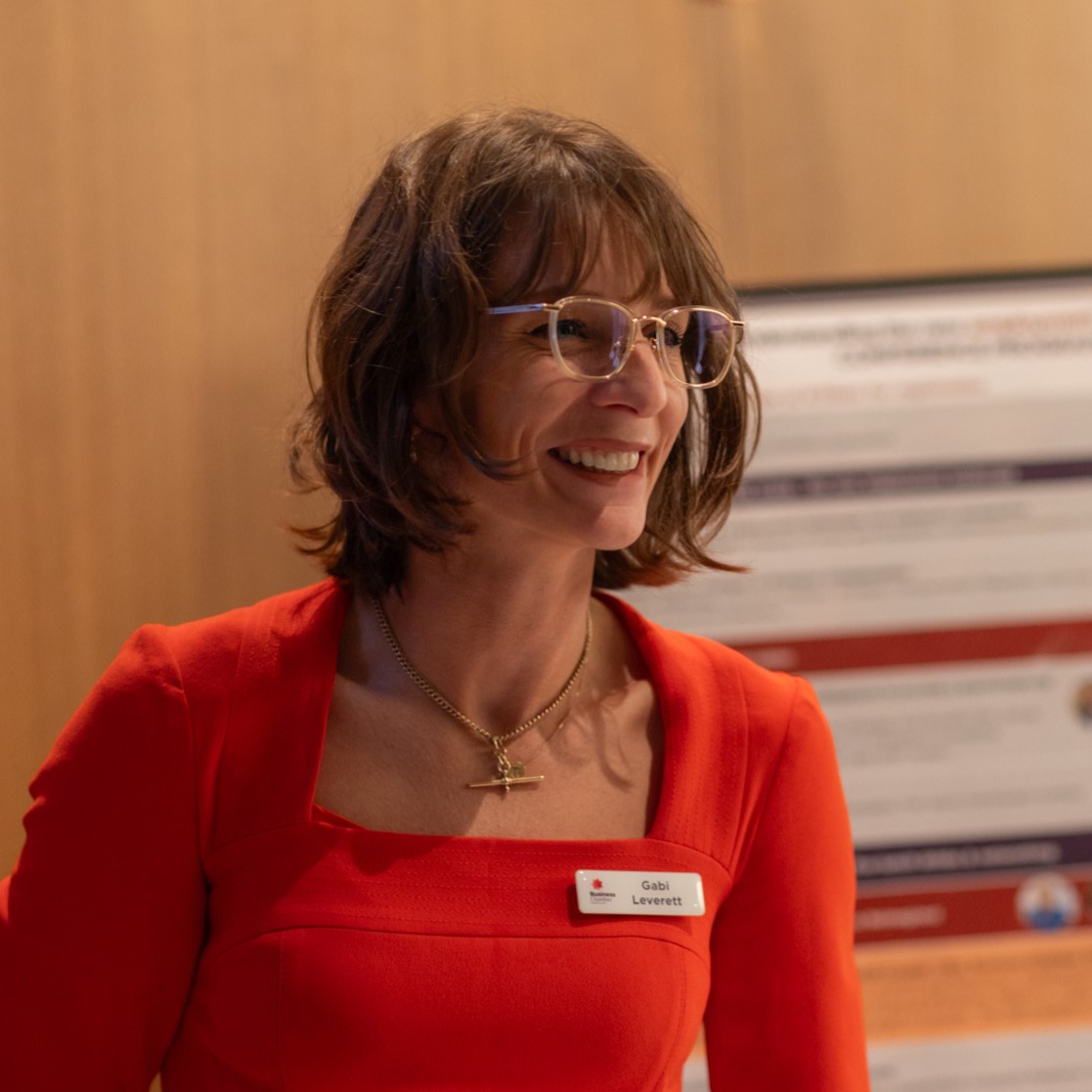When Andrea and Richard Herklots left the corporate world and bought a small e-bike shop in Brisbane’s Brendale industrial precinct in late 2019, they were looking to build a business with purpose.
Today, EveryBody eBikes is not your average bike shop. Now located in Gaythorne on Brisbane’s north side, it’s a business focused on enabling inclusive cycling, offering e-bike, trike, and customised solutions for people of all shapes, sizes, and abilities.
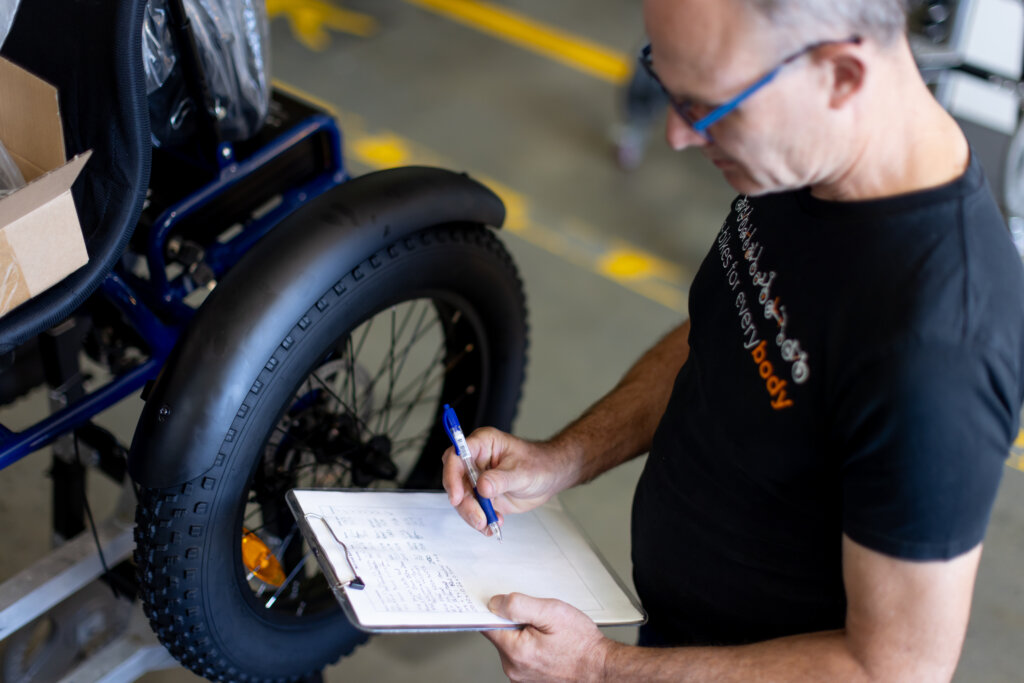
Becoming the home of inclusive cycling
With backgrounds in the environmental sector and engineering, the Herklots’ weren’t from the bike industry, but they were passionate riders who saw the potential of e-bikes for sustainable transport, social connection, and inclusion. With their team of eight employees, they’ve grown into Australia’s home of inclusive cycling, helping people of all ages, abilities, and confidence levels rediscover the freedom of movement and joy that cycling can offer.
“We see ourselves as a business first – not just a shop,” said Andrea. “Our focus is on removing barriers for people who want to ride but don’t, whether that’s due to disability, ageing, injury, or lack of confidence.”
What started as a standard e-bike business quickly evolved after Everybody eBikes received a growing number of enquiries from health professionals, carers, and individuals looking for adaptive cycling solutions, particularly during the COVID-19 lockdowns, when outdoor exercise became essential but not always accessible.
“We were located directly opposite CPL (Choice, Passion, Life), and we started getting requests from occupational therapists and physios working with people with cerebral palsy and other conditions,” Andrea said.
“There was this gap in the market for people living with a disability who wanted to get out and cycle, wanted independence and freedom to get around, but couldn’t ride a traditional bike. And then there’s also a cohort within the general population who are looking for a more stable bike or simply need the electrical power to enjoy cycling.”
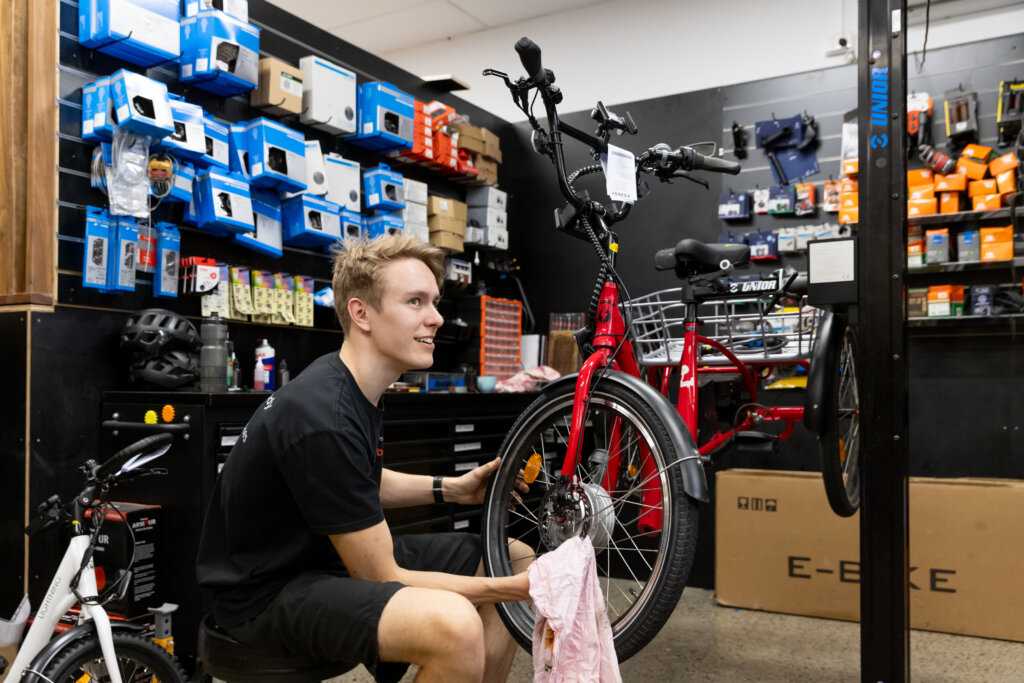
From there, EveryBody eBikes leaned into adaptive design. While they don’t manufacture bikes from scratch, they design and import trikes and stock a wide range of adaptive models that can be modified in-house to suit individual needs, through adaptations to the seating and handlebar systems, braking and power controls, and more. The business also became a registered provider with the NDIS, allowing them to support people living with a disability through a more structured process.
Offering choice to all riders
For their customers, EveryBody eBikes conducts in-store trials, provides detailed product information, and delivers a high-quality, consistent experience. At any given time, customers can try a selection of 20 or more e-bikes and trikes including cargo bikes for young families and over 14 adaptive models, far more than a typical bike shop could offer.
“We always ask: what is this person trying to achieve? It’s not just about the bike, it’s about safety, confidence, and connection.”
“We have a set range of modifications that we can provide for our customers, but we also take on two complex challenges each year to innovate and keep thinking of new ways to do things better, without placing too much financial burden on the business,” Andrea said.
Becoming a Business Chamber Queensland member
As EveryBody eBikes grew, Andrea and Richard sought access to business expertise and support, so they became a Business Chamber Queensland member in 2023. For Andrea, one of the biggest benefits has been the provision of expert workplace relations advice through the Employer assistance hotline.
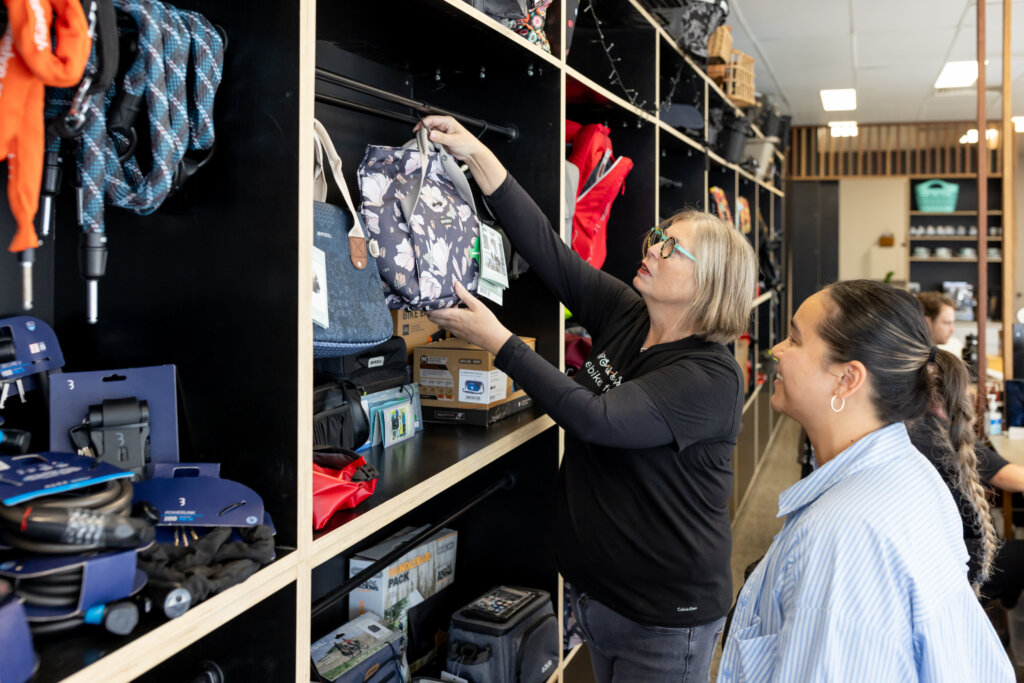
“As a small business, we don’t have an HR department, but we still have to navigate complex HR and IR legislation,” Andrea said. “We care a lot about our team dynamic and creating a positive and flexible work environment. The Chamber’s HR support has been really valuable in helping us do that.”
Andrea says Business Chamber Queensland’s Workplace Relations team has helped them stay up-to-date and confident in their decisions, especially when balancing what’s best for both the business and the team. “Some members of the Workplace Relations team at the Chamber have given us so much more than we ever expected in terms of support and guidance. I would never hesitate to reach out with questions,” Andrea said.
“We want to welcome employees with young children, people who want to work school hours, and all different types of scenarios, but we need advice to do it the right way,” Andrea said.
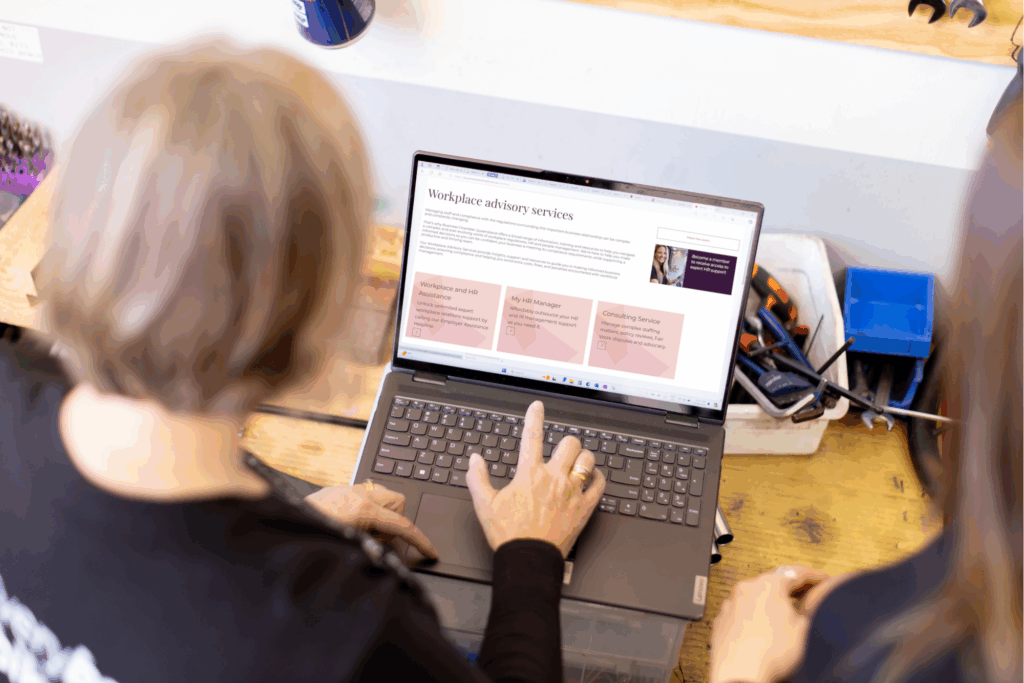
Innovation comes at a cost
While EveryBody eBikes is growing and attracting national and international attention, it hasn’t been without setbacks. The 2022 Brisbane floods damaged the business and significantly impacted their ability to reinvest. And more recently, evolving tariff announcements in the United States has created uncertainty around the business’s export opportunities.
EveryBody eBikes is not a not-for-profit, but in many ways, it operates like one: reinvesting earnings back into problem-solving, innovation, and community access.
Andrea said, “On paper, we may look like we’re doing well, but the reality is that the costs of running this kind of operation are extremely high. The people we support often need solutions that aren’t profitable, but we do it because no one else is.”
Preparing for Business 2032
Looking to the future, EveryBody eBikes wants to be part of Brisbane’s evolution as it prepares to host the 2032 Olympic and Paralympic Games. Their vision is to create Brisbane’s first bike library – a not-for-profit model where people can borrow an e-bike for up to two weeks, either for a temporary trip to Brisbane, or to build confidence and reduce fear around riding before committing to buying.
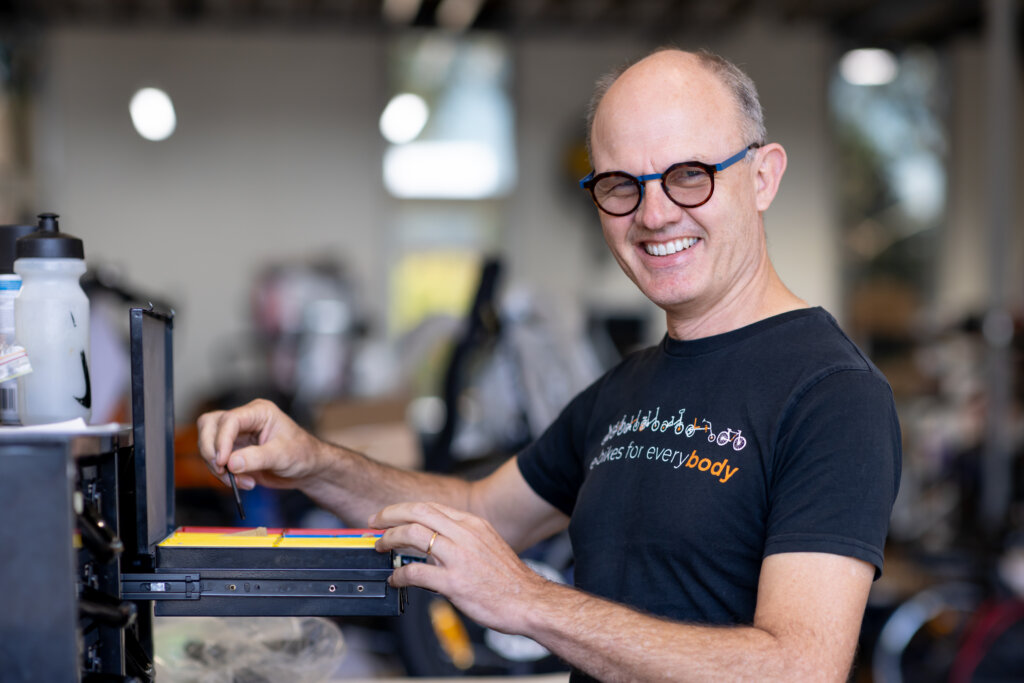
It’s an ambitious idea that would need funding support, but one with enormous potential for creating a more active, inclusive, and sustainable transport system for Brisbane. As the city looks to move away from car dependency, Andrea says, bike riding, including adaptive cycling, needs to be part of the conversation, particularly for infrastructure design and mobility solutions during major events.
“We’ve been thinking a lot about how we can support both the Olympics, and in particular, the Paralympics in 2032. For example, we could have a fleet of e-bikes for athletes to use around the Games village or to access venues,” Andrea said.
“We want to create opportunities like that for people to move freely, safely, and joyfully around our city, no matter their age or ability.
“But in order to achieve this, we also need to look at the cycling infrastructure available across the city and suburbs. There are some great paths around, but many of them lack the connecting infrastructure to make them accessible for everyone,” Andrea said.
Going forward, Andrea and Richard seek to continue their work at EveryBody eBikes identifying cycling solutions for every type of customer who comes through their doors. Their focus remains on innovation and finding opportunities to push the boundaries of inclusive cycling both nationally and globally.







